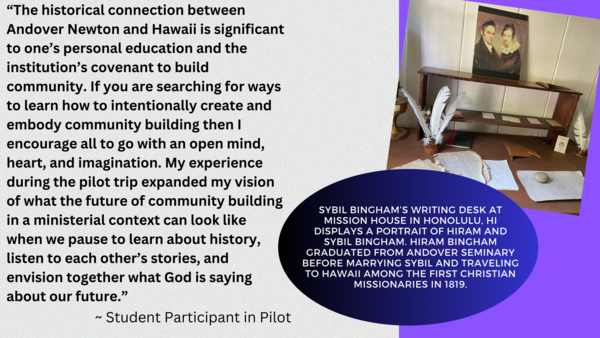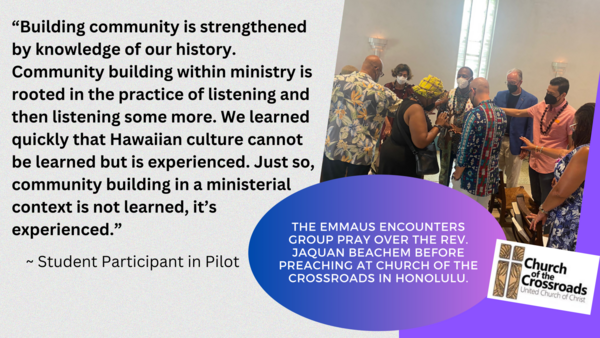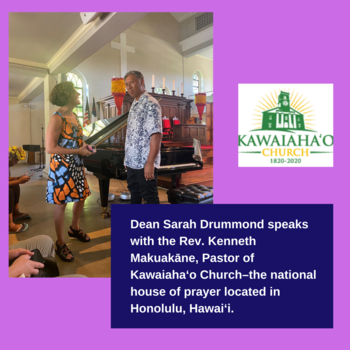Emmaus Encounters: Building Community On the Road

Now, on that same day, two [disciples] were going to a village called Emmaus, about seven miles from Jerusalem, and talking with each other about all these things that had happened. While they were talking and discussing, Jesus himself came near and went with them, but their eyes were kept from recognizing him. And he said to them, “What are you discussing with each other while you walk along?” They stood still, looking sad. Then one of them, whose name was Cleopas, answered him, “Are you the only stranger in Jerusalem who does not know the things that have taken place there in these days?”
Ready to give? Find instructions below!
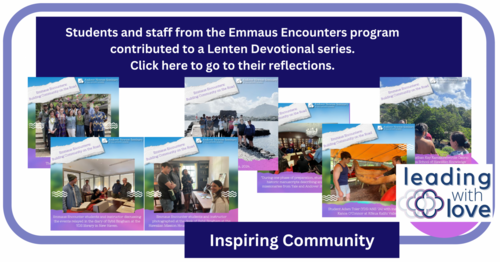 Rooted in the Christian faith that holds communities together, Andover Newton is discerning how best to address, learn about, and confront the disorientation of our times. Some learning happens in classrooms, yet even more can happen when the Andover Newton faculty and staff guide students in the creation of community-building initiatives, journeying with them as they learn-by-doing. The most innovative community-building program that Andover Newton Seminary will launch at Yale Divinity School will be Emmaus Encounters: Building Community On the Road.
Rooted in the Christian faith that holds communities together, Andover Newton is discerning how best to address, learn about, and confront the disorientation of our times. Some learning happens in classrooms, yet even more can happen when the Andover Newton faculty and staff guide students in the creation of community-building initiatives, journeying with them as they learn-by-doing. The most innovative community-building program that Andover Newton Seminary will launch at Yale Divinity School will be Emmaus Encounters: Building Community On the Road.- January 5, 2024: “Tending Our Yearning for a Cosmic Grownup”
- January 10, 2024: “Walking Tree”
- January 12, 2024: “Repair Versus Erasure”
- January 17, 2024: “Out of Here, To There”
- January 18, 2024: “Missional Missionaries”
- January 25, 2024: “Everything is Built On a Graveyard”
Through Emmaus Encounters: Building Community on the Road, future ministers will:
 Learn how to “talk to strangers,” building meaningful relationships
Learn how to “talk to strangers,” building meaningful relationships- Shift worldviews: “strangers” become “neighbors”
- Develop language to make theological meaning out of building community
- Adopt a pro-community attitude and develop skills to put that attitude into action
Ready to give? Find instructions below.
Andover Newton’s leaders are developing innovative practices for promoting a new and more life-giving way of crossing borders. What are some of those practices? Here are just a few:
- Shared leadership within groups
- Humility when entering new spaces, meeting new people
- Hospitality when encountering opportunities for exchange
- Multidisciplinary forms of engagement with new communities
- Action balanced with deep reflection
- Asking and answering questions; listening and sharing
- Dean Sarah Drummond and Director of Community Development and Spiritual Formation JaQuan Beachem co-authored an article on this border crossing and community formation, published in The Wabash Center: Journal On Teaching. Access a pdf of the article here.
- Then student, now alum Adam Toler also wrote a thoughtful reflection on one specific experience in Hawaii, which he shared during an Emmaus Worship Service. Find Adam’s reflection here.
For their first three years, Emmaus Encounters: Building Community on the Road will take students to Hawaii. Why Hawaii, you might ask?
First, Andover Seminary and Yale were the two institutions that educated the first missionaries sent from New England to Hawaii more than 200 years ago. The two schools share a connection with Henry Opukaha’ia, a Hawaiian who traveled with merchants from Hawaii to New Haven, and then Andover, seeding interest in sharing the Gospel in Hawaii.
- How do we make sense of the history of missions, given that missionaries both did wonderful things but also paved the way for those who came for the purpose of exploitation?
- How do we process the violence to which the American military subjected Hawaii, which one can now sense in a profound way when visiting Pearl Harbor?
- How might our students learn from current Hawaiian movements, like the reclamation of the Hawaiian language among young people, ecological preservation, and the protection of land understood to be sacred?
Giving Information:
Thank you for considering a gift to Emmaus Encounters: Building Community on the Road! By clicking “Give Now,” you will be taken to the page where you will enter your giving information. Once you click, you will see the fund line. Enter the amount of your gift and then scroll down to provide your information. Thank you!
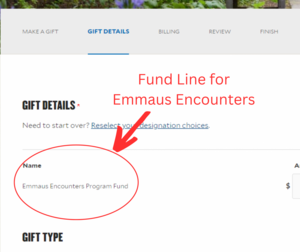

Student Reflections from Lent 2024
